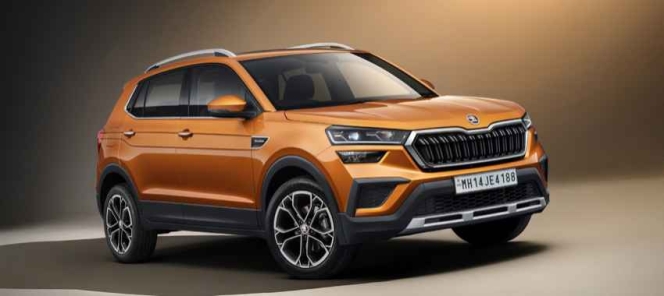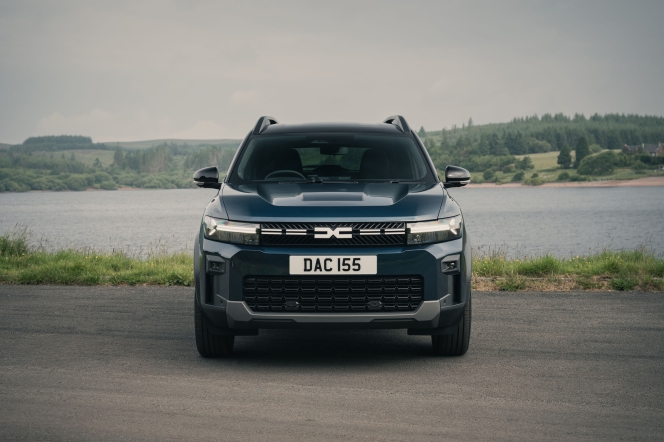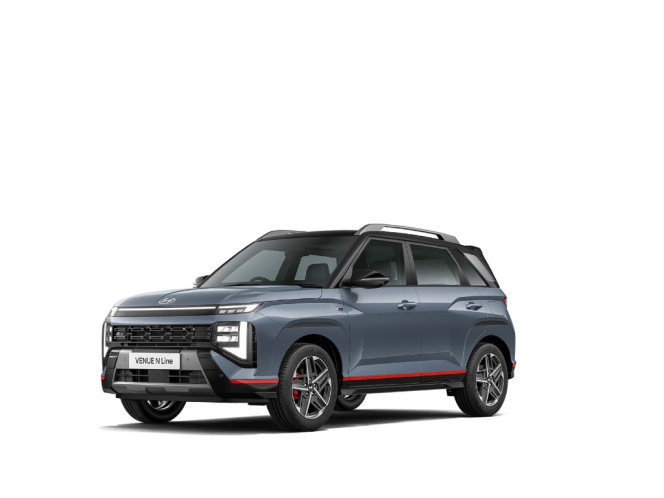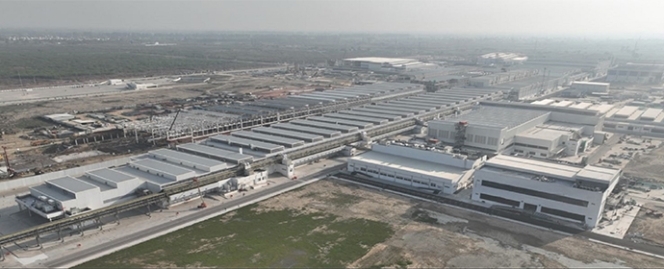- Regrip
- tyre recycling
- tyre life
- Suneil Shetty
- Bollywood
- Govt of Rajasthan
- Ministry of Electronics and Information Technology
- MeitY
- IIMA Ventures
- Sirious One
- Inflection Point Ventures
- Let's Venture
- EaseMyTrip
- Rikant Pitti
- Shobitam
- Aparna Thyagarajan
- Bombay Chemical & Rubber Product
- Vishal Jhunjhunwala
- TIE Angels
- Mahavir Pratap Sharma
- Tushar Suhalka
A King Waiting In The Wings?
- By Arup Das
- June 22, 2021

Skoda Auto India took the wraps off the much-awaited Kushaq and made its global debut after showcasing its concept version, Vision IN at the 2020 Auto Expo. After a series of teasers, we finally got to see, touch and sit inside the production version of this all-new SUV. The Kushaq has many firsts going for itself like it is Volkswagen Group’s first locally manufactured SUV in India and it is also the first vehicle to be rolled out under Volkswagen Group’s India 2.0 Project. There’s further good news for SUV fans as Skoda will start accepting booking orders for the Kushaq from June with the first batch to be delivered in July.
 The German manufacturer also squashed rumours of it planning to exit the Indian market by emphasising that the group is investing one billion euros to strengthen its presence in the Indian subcontinent and aim to achieve a combined market share of five percent by 2025. Thomas Schäfer, Skoda Auto CEO, further confirmed this by saying, “With the world premiere of the Skoda Kushaq, we are launching our model campaign on the Indian market and are fulfilling the mandate Volkswagen Group tasked us with roughly two and a half years ago when we were asked to assume responsibility for the Indian market. I would like to thank Gurpratap Boparai, Managing Director of Skoda Auto Volkswagen India Private Limited and his team for what they have achieved so far. We are now focusing on a smooth market launch and the successful start of our new model while setting the course for the next steps on the Indian subcontinent. I am convinced of the country’s great growth potential. And we will make the most of it for Skoda and Volkswagen.”
The German manufacturer also squashed rumours of it planning to exit the Indian market by emphasising that the group is investing one billion euros to strengthen its presence in the Indian subcontinent and aim to achieve a combined market share of five percent by 2025. Thomas Schäfer, Skoda Auto CEO, further confirmed this by saying, “With the world premiere of the Skoda Kushaq, we are launching our model campaign on the Indian market and are fulfilling the mandate Volkswagen Group tasked us with roughly two and a half years ago when we were asked to assume responsibility for the Indian market. I would like to thank Gurpratap Boparai, Managing Director of Skoda Auto Volkswagen India Private Limited and his team for what they have achieved so far. We are now focusing on a smooth market launch and the successful start of our new model while setting the course for the next steps on the Indian subcontinent. I am convinced of the country’s great growth potential. And we will make the most of it for Skoda and Volkswagen.”
Volkswagen Group’s India Project 2.0 focus is on manufacturing vehicles tailor-made for India, but more importantly, giving utmost importance to high-level localisation of parts and sharing key components with other vehicles in the group. The testimony to this is the Kushaq that’s managed to achieve 95 percent localisation level. The other thing the VW Group paid a lot of attention to was creating a platform for India and which fulfils the diverse demands of our market as well as meet the latest, stricter safety and emission requirements.
While targeting high-volume segments, the VW Group has built a new India-spec modular MQB platform, the MQB-A0-IN, based on which two SUVs including the Kushaq and two notchbacks will be launched under both the Skoda and Volkswagen brand. Again, in order to achieve a high level of localisation in India, Skoda has set up a new MQB production line at its Chakan plant near Pune.
One might ask, what’s in a name, but in Skoda’s case, it means quite a lot as it continues to follow its K & Q nomenclature. The name of the new SUV is derived from the Sanskrit word ‘Kushak’, which means king or emperor.
Exterior design: The production version of the Kushaq has managed to retain quite a few of its design elements from its concept model. It showcases the typically solid and muscular design language of the Volkswagen family. The big butterfly shaped front grille with vertical slats in chrome finish and split L-shaped LED headlights with crystalline structures make the Kushaq stand out in the crowd. It sports quite a robust road presence thanks to the large air vents below the headlamps, the front bumper with a mesh finish and, of course, the skid plates in the front and rear. If that wasn’t enough to make a statement, the clean prominent lines on the bonnet and running across the shoulder line in the side and multiple creases in the rear give the Kushaq a no-nonsense image. The SUV will be available in three variants – Active, Ambition and Style – with the entry-level sporting 16-inch steel wheels while the mid-range gets 16-inch alloy wheels and top-of-the-range Style will boast two-tone 17-inch ones.
In terms of specifications, the Kushaq is 4,221 mm long, 1,760 mm wide and has a height of 1,612 mm with a ground clearance of 188 mm. Its wheelbase, on the other hand, is 2,651 mm in length, making it longer than mid-size SUV segment leader Hyundai Creta and the popular Kia Seltos. This ensures a spacious cabin for five passengers along with 385 litres of boot space.
 Interiors: The Kushaq gets a multi-layered dashboard with black plastic on top then a metal band and finally a brown and a black layer. The centre of attraction is the 10-inch touchscreen and the mid and top variant comes with a touch control panel for climate control. The infotainment system gets internal memory storage, wireless Smartlink, both Android Auto and Apple CarPlay and My Skoda in-car connectivity app.
Interiors: The Kushaq gets a multi-layered dashboard with black plastic on top then a metal band and finally a brown and a black layer. The centre of attraction is the 10-inch touchscreen and the mid and top variant comes with a touch control panel for climate control. The infotainment system gets internal memory storage, wireless Smartlink, both Android Auto and Apple CarPlay and My Skoda in-car connectivity app.
The Style trim is also equipped with some clever yet practical features like ventilated leather front seats, keyless entry, an electric sliding glass roof and an auto-dimming rear-view mirror.
Skoda has given a lot of importance to practicality; as a result, the Kushaq comes with numerous storage compartments in the cabin like a glove box, centre console, additional cubby holes to store bottles and other knick-knacks.
The Kushaq gets a brand new two-spoke steering wheel and the automatic versions come with paddle shifters. It also comes with chrome finish scroll controls and buttons for audio, phone and cruise control. What was a bit of a surprise was that it came with an analogue instrument cluster and not a digital one like its cousin, the Volkswagen Taigun.
All this sounds great, but how comfortable is the cabin? Well, with big supportive seats and decent under-thigh support, both the front and the rear passengers will feel pampered. A big bonus is that passengers over six feet in height will enjoy plenty of knee and legroom.
Engine: Unlike most of its competition in the mid-size SUV segment, the Kushaq will not offer a diesel engine option. It will be available in two engine options – 1-litre three-cylinder petrol with an output of 108 bhp mated to either a 6-speed manual or a 6-speed torque converter automatic gearbox like the Skoda Rapid. The 1.5-litre turbocharged petrol, on the other hand, churns out 145 bhp and will be available in either a 6-speed manual or a 7-speed dual-clutch automatic transmission.
Safety: The Kushaq comes fully loaded with safety features like electronic stability control, multi-collision brakes, six airbags including front side airbags, Hill-hold control, ISOFIX child seats and the list goes on. (MT)
Dacia Rolls Out 100,000th Bigster In Just One Year
- By MT Bureau
- February 05, 2026

Renault Group-owned European car brand Dacia has achieved a significant milestone with the rollout of the 100,000th Bigster just one year after its production began at the Mioveni facility in Romania. This impressive volume highlights the immediate and substantial demand for the brand's latest model. Even prior to its full market launch, the vehicle garnered over 13,000 pre-orders, signalling strong early interest in its proposition of a value-oriented, family-sized SUV.
The model swiftly translated this initial promise into market leadership, becoming the best-selling C-SUV to retail customers across Europe in the second half of 2025. This commercial success is mirrored in the United Kingdom, where close to 5,000 orders have been recorded. British buyers have shown a distinct preference for the efficient hybrid 155 powertrain and the generously specified Journey trim level, with Indigo Blue being the colour of choice.
Beyond sales figures, the Bigster's impact has been validated by influential industry awards, most recently at the 2026 What Car? Car of the Year Awards, where it was hailed as a definitive value champion. Designed to challenge the status quo, the Dacia Bigster, starting from GBP 25,215, successfully delivers a robust, well-equipped and practical solution for families, firmly establishing its successful position in the competitive automotive landscape.
Hyundai Motor India Reports INR 123 Billion Profit In Q3 FY2026
- By MT Bureau
- February 02, 2026

Hyundai Motor India (HMIL) has released its unaudited financial results for Q3 FY2026 and nine months ending 31 December 2025.
The company reported a Profit After Tax (PAT) of INR 123.44 billion for Q3, representing a 6.3 percent increase YoY. Revenue for the quarter reached INR 1,797.35 billion, up 8 percent compared to the same period last year. EBITDA stood at INR 2,018.3 billion, a 7.6 percent rise, supported by festive demand and the implementation of GST 2.0.
The company stated that the domestic demand was supported by wholesale volumes increasing 5 percent QoQ. The Hyundai Creta recorded sales of over 200,000 units in the 2025 calendar year, while the new Venue model has received nearly 80,000 bookings to date.
Hyundai Motor India also entered the commercial mobility segment with the Prime HB and SD taxi models. Exports grew by 21 percent YoY in Q3 FY26, accounting for 25 percent of the total sales mix.
For the nine-month period, EBITDA reached INR 6,632.5 billion, a 3.3 percent increase. EBITDA margins expanded to 12.8 percent, up from 12.5 percent in the previous year, despite costs related to capacity stabilisation and commodity prices.
Tarun Garg, Managing Director & Chief Executive Officer, said, “The third quarter performance underscores our resilience and strong execution of 'Quality of Growth' strategy, marked by healthy growth in volumes, revenue and profitability. Notably on a year-to-date basis, EBITDA margins expanded to 12.8 percent as against 12.5 percent last year, supported by our efforts towards improving sales mix and prudent cost control measures. As we move ahead, the robust January’26 sales number gives us great momentum towards a healthy 2026.”
|
Particulars |
Q3 FY26 |
Q2 FY26 |
Q3 FY25 |
9M FY26 |
9M FY25 |
|
Revenue |
179,735 |
174,608 |
166,480 |
518,472 |
512,526 |
|
EBITDA |
20,183 |
24,289 |
18,755 |
66,325 |
64,211 |
|
EBITDA % |
11.2% |
13.9% |
11.3% |
12.8% |
12.5% |
|
PAT |
12,344 |
15,723 |
11,607 |
41,759 |
40,259 |
Jeep Reaffirms India Commitment With Strategic Plan Jeep 2.0
- By MT Bureau
- February 02, 2026

Stellantis-owned Jeep has announced its Strategic Plan Jeep 2.0, positioning India as a central hub for its operations in the Asia Pacific region. The plan focuses on localisation, manufacturing depth, and export expansion from the company's facility in Ranjangaon, Pune.
As part of the strategy, Jeep intends to increase localisation levels to 90 percent, up from the current 65–70 percent. This move is aimed at strengthening supply-chain resilience and cost competitiveness. The Ranjangaon plant, which has an annual capacity of 160,000 vehicles, currently exports the Compass, Meridian, and Commander to markets including Japan, Australia and New Zealand. Plans are underway to expand exports to Africa and North America.
The company plans to introduce a new vehicle lineup in India starting from 2027. In the interim, Jeep will maintain its current portfolio through refreshes and special editions. To support its customers, the brand has introduced the Confidence 7 programme, which includes a buyback scheme, pre-maintenance packages, and extended warranties.
At present, Jeep operates over 85 sales and service touchpoints across 70 cities in India. The automaker stated that in 2025, the Wrangler Willys 41 limited edition sold out within seven days. The company is also focusing on its owner community, which has reached 100,000 members, through experiential platforms and brand clubs.
Shailesh Hazela, CEO & Managing Director, Stellantis India, said, “Jeep’s 85-year legacy is built on authenticity and adventure. Strategic Plan Jeep 2.0 lays out how we will sharpen our product strategy and strengthen the customer experience year after year, driven by deeper localisation, global product alignment, expanding our vehicle offerings, and programs that deliver real value. We are equally focused on taking care of our existing customers, ensuring they receive the support, service and confidence they expect from Jeep. Success in India demands resilience and long-term commitment and we are investing with that clarity to ensure Jeep remains a brand of pride and desirability.”
Maruti Suzuki India Reports INR 37.94 Net Profit For Q3 FY2026
- By MT Bureau
- January 28, 2026

Maruti Suzuki India, the country’s largest passenger vehicle manufacturer, has reported its financial results for Q3 FY2026.
The company reported revenue of INR 475.344 billion, as against INR 368.02 billion last year, net profit came at INR 37.94 billion, as against INR 36.59 billion last year. It is to be noted that the net profit was impacted for Q3 FY2026 was impacted due to a one-time provision of INR 5,939 million relating to new Labour Codes.
During the period, the company achieved its highest quarterly domestic sales of 564,669 units, an increase of 97,676 units over the previous year. Total sales reached 667,769 units, which included 103,100 units in exports. This performance was supported by a recovery in the car market following GST reform, with the small car segment in the 18 percent GST bracket contributing significantly to the volume increase.
For the nine-month period from April to December 2025, the company recorded its highest sales volume, net sales and net profit. Total sales volume reached 1,746,504 units, with domestic sales at 1,435,945 units and exports at 310,559 units. Net sales for this period increased to INR 1,242 billion, while net profit grew to INR 1,085 billion.
Financial statements for the period have been restated following the amalgamation of Suzuki Motor Gujarat (SMG) with MSIL. This process took effect from 1 April 2025. The company continues to monitor market conditions as it manages its manufacturing and sales operations.
The recovery in the car market was led by the small car segment. Sales growth in this category accounted for 68,328 units of the total domestic increase. The company remains focused on domestic and export markets to maintain its sales volumes.







Comments (0)
ADD COMMENT